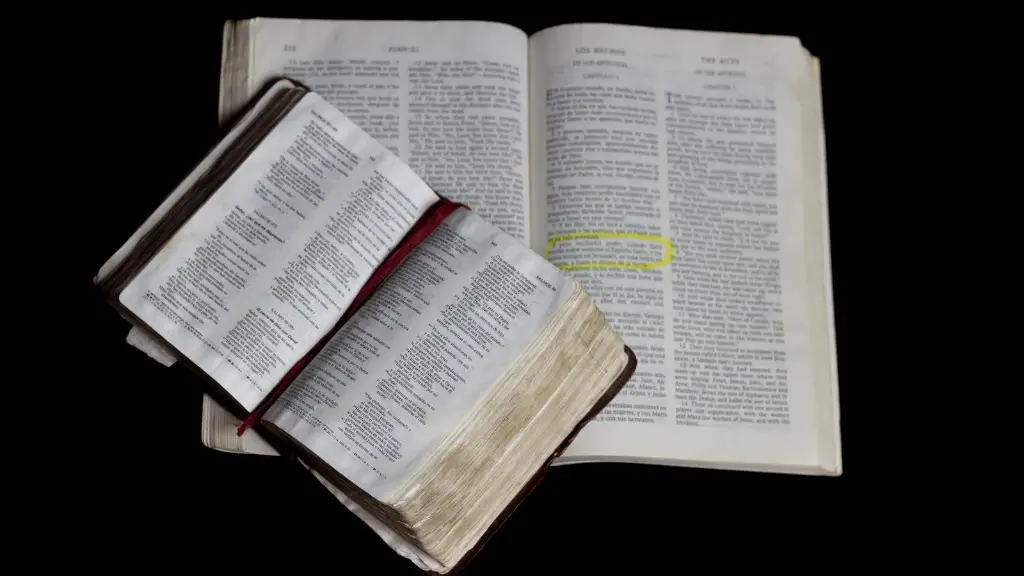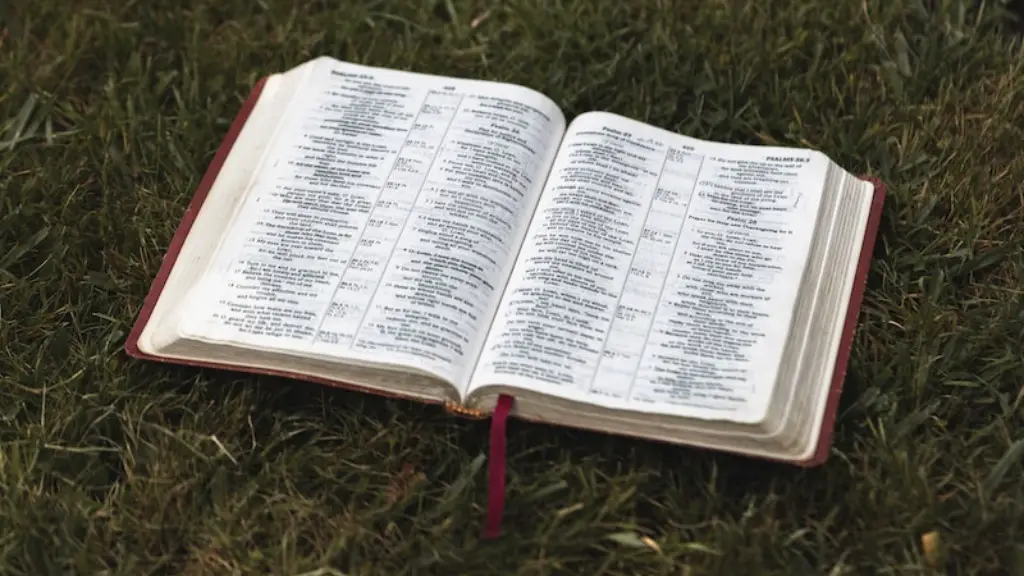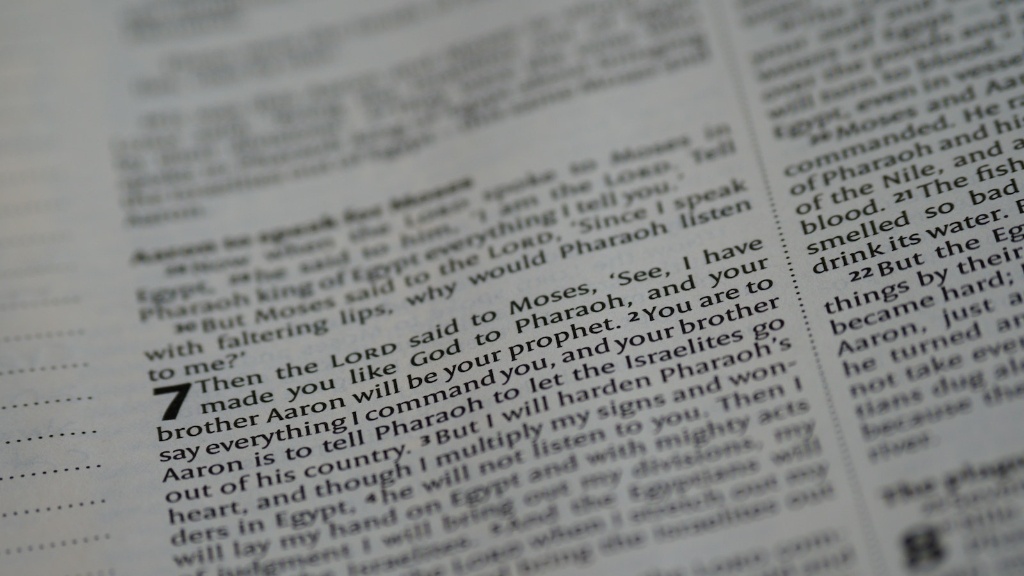Making anointing oil isn’t just a biblical tradition, it’s an important and popular practice still participated in today. Anointing oil is a type of scented oil that is believed to bring the recipient positive energy and blessings in their life. It is used in many religious and spiritual ceremonies, and carries a different meaning depending on the religion in which it’s used. In the Bible, anointing oil had several purposes, with the most important being a sign of honor and consecration.
The first reference to anointing oil in the Bible is found in Exodus 30:22-25. Here, God commands Moses to make a special anointing oil that will be used to consecrate people, places, and objects. This anointing oil was made from a specific combination of myrrh, spices, cinnamon and cassia. The ingredients for this anointing oil must come from sources native to Palestine and have been passed down from generation to generation.
Anointing oil was also used during religious ceremonies. In the Old Testament, it was used in the ordination of priests and kings. The oil was also used as a symbol of healing, protection and spiritual renewal. In the New Testament, Jesus also uses anointing oil to heal the sick. Anointing with oil was something that was very common in biblical times and its purpose was to symbolize the divine power of God.
Today, many churches still use anointing oil. The recipe has remained the same even though modern technology has allowed us to experiment with different ingredients. Many churches make the anointing oil in-house using the same ingredients mentioned in the Bible and it’s used during ordination ceremonies, baptisms and other religious services. However, it’s not currently accepted for people to carry anointing oil with them. The need for consecration and anointing oil is seen as much less now than in biblical times.
Making anointing oil from the Bible is a very sacred and special process. The ingredients have to be carefully chosen for their spiritual and medicinal properties. The process of making anointing oil is long and laborious, due to the specific instructions prescribed in the Bible. It requires patience and skill, and it’s important to take all the necessary precautions when preparing it. The oil should also be stored gently and safely, as even an oversite can affect its power.
Ingredients
The biblical recipe for the anointing oil includes several aromatic ingredients native to Palestine. According to Exodus 30, the ingredients consist of myrrh, sweet cinnamon, fragrant cane and cassia. While myrrh and sweet cinnamon are easily found in most health food stores, fragrant cane and cassia may be more difficult to find. However, if you can find them, the combination of these four ingredients creates a powerful oil that can be used for healing and spiritual purposes.
Myrrh, one of the ingredients in anointing oil, was used in ancient times to treat skin disease, wounds and infections. It is a powerful antiseptic with anti-inflammatory and healing effects. Sweet cinnamon, also known as “true” cinnamon, is an evergreen tree native to India and Sri Lanka. This cinnamon is warm and sweet in flavor and has a long history of being used in religious ceremonies.
Fragrant cane was also used in making anointing oil. This is a type of reed found in Palestine and is used for its sweet, woody aroma. Finally, cassia, also known as “biblical” cinnamon, is a powerful spice with many medicinal properties. It is strongly aromatic and has a sweet taste.
Making The Oil
Once all the ingredients for the anointing oil have been gathered, the next step is to make the oil. The bible specifies that the ingredients should be crushed, pounded, and then combined with olive oil. The olive oil acts as a preservative and is believed to enhance the spiritual potency of the anointing oil. The oil should be stored in an air-tight container and kept out of direct sunlight.
When using the oil, it should never be applied to skin directly. Instead, it should be used as an inhalant or as part of a ritual. The ritual can include anointing a person, object, or place. It’s also important to be mindful of how much oil you are using, as this can affect the power of the anointing oil.
Purpose
Anointing oil is much more than just a fragrant oil, it is a powerful tool that has been a part of many spiritual and religious traditions for centuries. Its purpose varies depending on the religion or spiritual practice in which it is being used. In the Bible, anointing oil was used for many different purposes, from consecrating people and places to healing and spiritual renewal.
Many churches still use anointing oil today, though its purpose is seen as much less important than in Biblical times. Making anointing oil according to the Biblical recipe is a long and difficult process, but the end result is a powerful oil that can be used for healing, protection and spiritual purposes.
Risks
Though anointing oil can be used for healing and spiritual purposes, it is important to be careful when using it. Some people may be allergic to the ingredients used in the oil, so it should always be tested on a small area of skin before using it extensively. It is also important to use anointing oil in the correct context and never overuse it, as this can lessen its power.
It is also important to note that some ingredients used in the anointing oil, such as cassia and myrrh, may have some side effects if taken in large doses. While these are only minor risks, it’s important to be aware of them in case of any potential allergies or health complications.
Conclusion
Making anointing oil from the Bible is something that has been done for centuries. It is a powerful tool that can be used for healing, protection and spiritual renewal. By following the recipe mentioned in the Bible and using the right ingredients, it is possible to create a powerful anointing oil that can be used in religious ceremonies and other spiritual practices. However, it is important to be aware of the risks and use the oil with caution.



